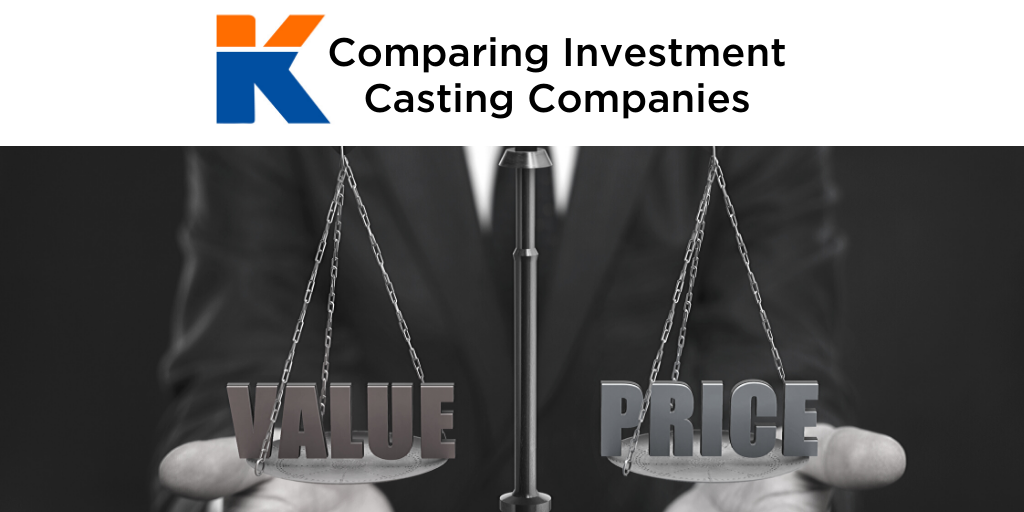Comparing Investment Casting Companies
When comparing investment casting companies for your next manufacturing project, it’s important to know about all of the material options, tolerances, and in-house machining options.
Although investment casting is one of the oldest and most trusted manufacturing techniques used for metal parts and components, casting services, processes, and quality standards vary between foundries.
Investment Casting Options?
Investment casting options use a variety of specialized processes for casting metals into precise, accurate shapes and units from a mold. The metal part is produced to deliver tight tolerances and a smooth surface finish.
The most common metals used for investment casting are:
- Alloy Steel
- Aluminum
- Carbon steel
- Copper
- Stainless Steel
Investment Casting Comparison Checklist
Investment casting is popular among project managers and leads because it offers many advantages over other methods of casting for complex designs, a wide range of alloys, minimal tooling costs, and minimal size restrictions. The investment casting process is common for making parts for large-scale industrial projects in the aerospace, automotive, firearms, and railway industries.
What do project managers look for when comparing investment casting companies?
- Projects delivered with accuracy and integrity
- Delivery on tight tolerances and smooth surface finishes
- Industry-specific expertise
- Customer support and consultations
- One-stop casting services – no outsourcing
- Competitive investment casting costs without sacrificing quality
If you’re unsure whether investment casting is the right process for your project, an experienced support team will help you decide. Make sure the following topics are covered in your initial consultation:
Complexity
Discuss the complexity of the part, product iterations, budget, and material preferences. Next, learn about the prototyping process. If an investment casting company has experience in delivering superior results, you’ll learn about their state-of-the-art equipment, and machining and testing processes.
Part Size & Requirements
Part size and requirements are another consideration. While parts up to 2,000 lbs have been cast successfully, it’s not always recommended for parts weighing more than 100 – 200 lbs. Parts that require cores are not recommended for investment casting.
Volume
The size of your order will play a role in the cost of investment casting. Many investment casting companies offer lower per-unit costs for large-volume / large production orders.
Nothing is more important in choosing the right casting company and finding one that encourages early supplier involvement. An experienced casting company with a reputation for success knows how to guide you in the right direction and choose the right material for your project and budget. They’ll be able to give you an accurate investment casting cost estimate quickly and easily.
Industry Specialization
Investment casting services are perfected through experience. Be sure to ask about industry knowledge and specializations. At KICastings, we specialize in investment casting/die casting for all of the following industries:
- Aerospace Investment Casting
- Automotive Casting Services
- Automotive Parts Die Casting
- Electrical Industry Casting
- Firearms Investment Casting
- Food Industry Castings
Alternative Options
Most investment casting foundries offer a variety of alternatives, such as low-pressure die casting, precision machining, and CNC machining. A reputable foundry will gather the right information and ensure that you’re selecting the right process for your metal project.
At KICastings, we know the ideal criteria for investment casting projects and we aren’t afraid to point out limitations if it’s not the right match to help you reach your goal. We strive to deliver the best price and value to each and every customer backed by 27 years of experience.
Request a Proposal
Learn more about investment casting services from an expert metal casting foundry. Our services include:


